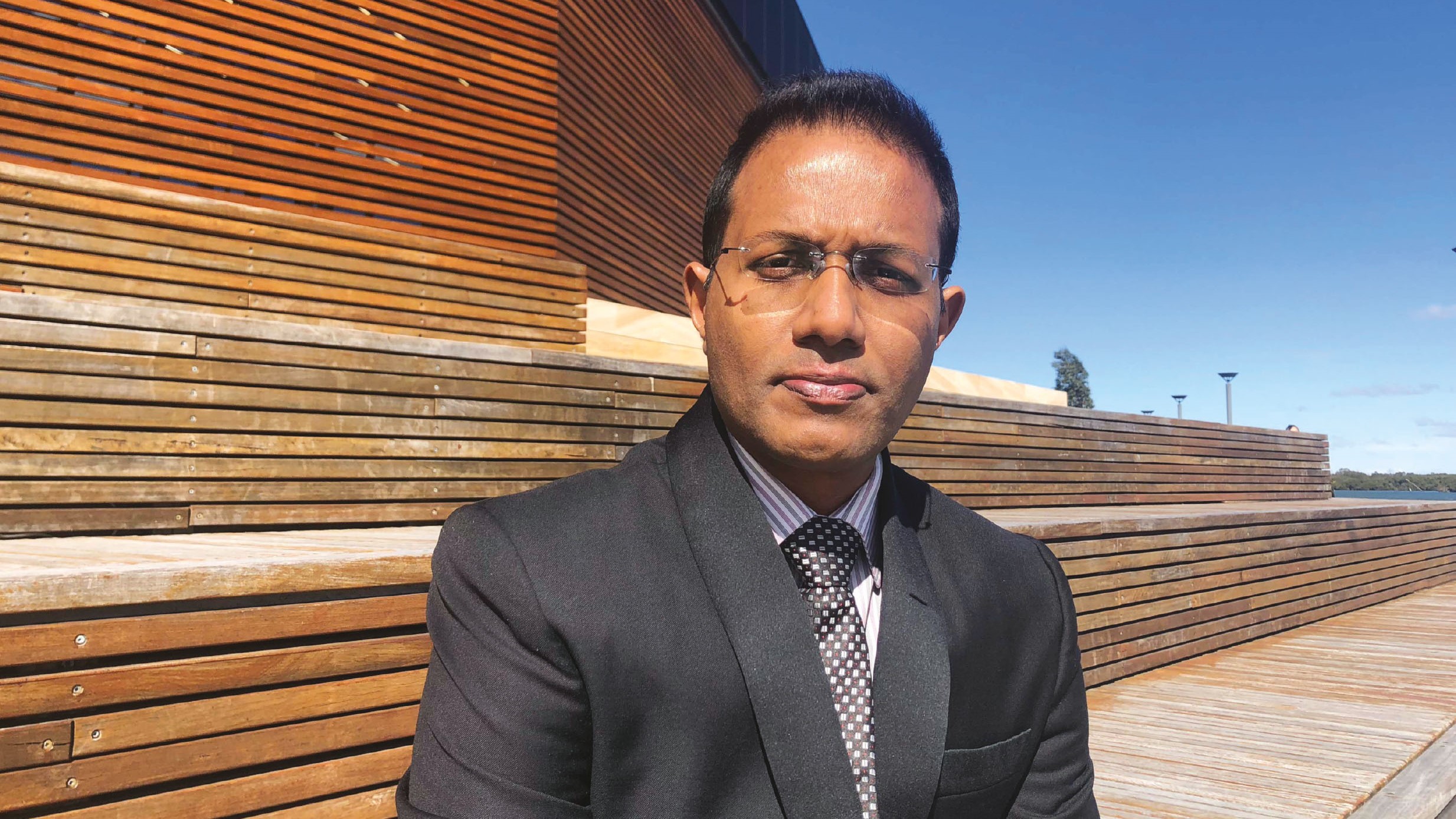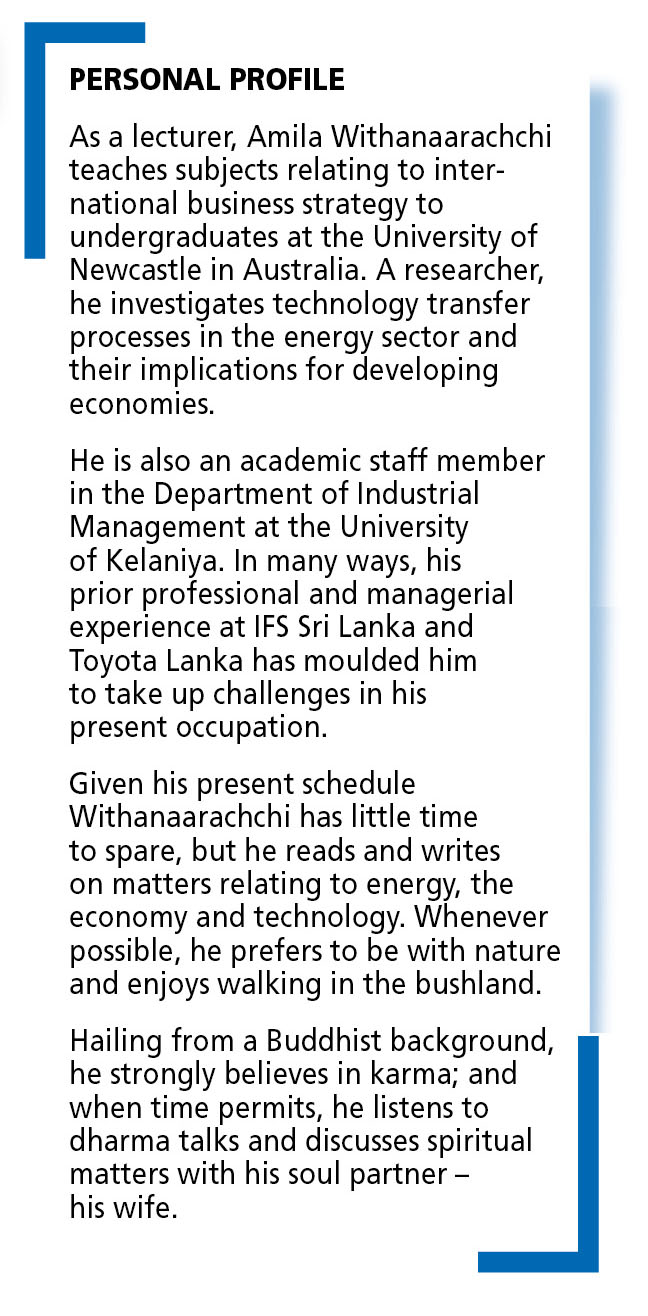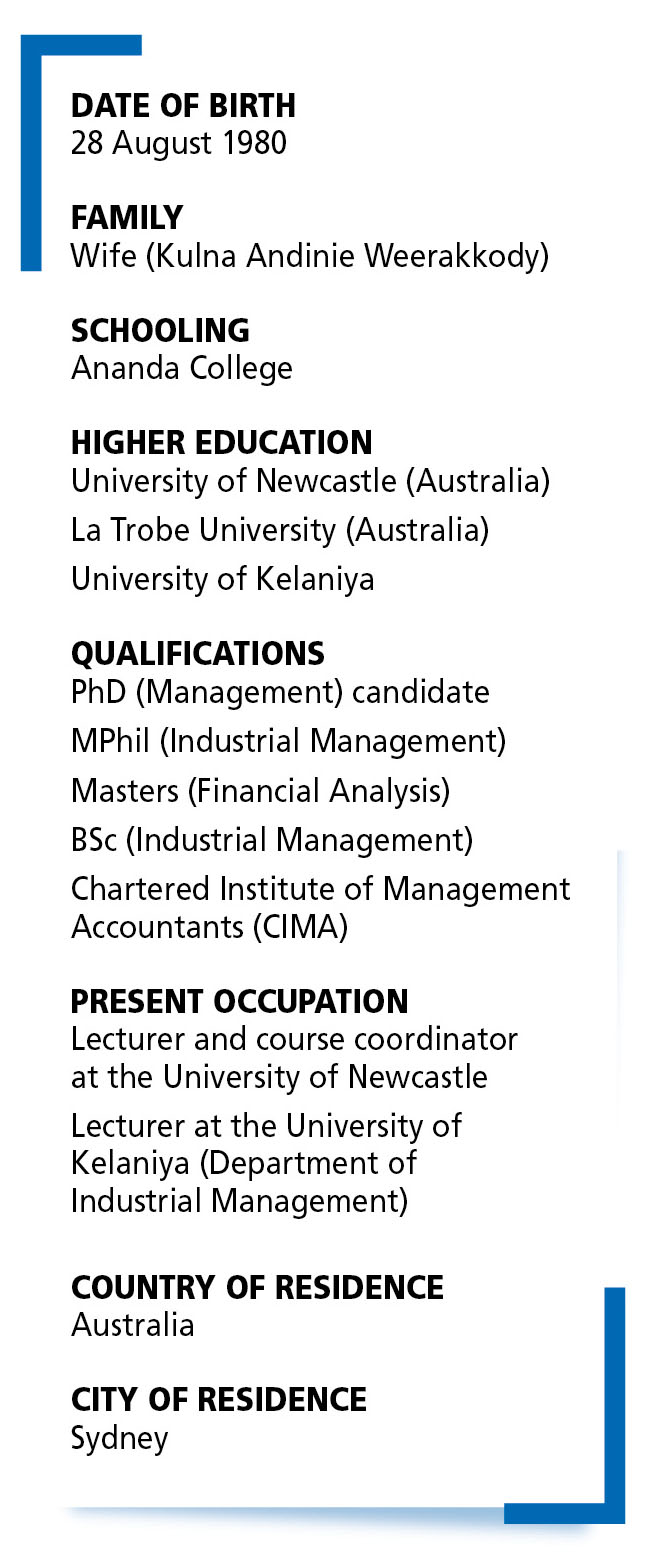SRI LANKANS OVERSEAS
OPPORTUNITIES LOST
Amila Withanaarachchi rues Sri Lanka’s many lost opportunities
Q: How do your compatriots in Australia view Sri Lanka?
A: Surprisingly, most Australians have a very positive perception of Sri Lanka. This is primarily due to the experiences they have with Sri Lankans who live abroad. On the other hand, many migrants from Sri Lanka are well-educated and hardworking individuals. So in a way, it is no wonder that Sri Lanka garners a positive reputation among Australians.
Q: And how do you perceive Sri Lanka today?
A: As a country, Sri Lanka has progressed in many areas but the real question is whether it has improved enough. The nation’s economy continues to survive primarily thanks to the private sector.
On the other hand, irrespective of any economic progress, Sri Lanka has come a long way in terms of the ICT industry. But again, the real question is whether it is using the advancements in ICT for the right purposes.
This question leads to the next point that needs to be highlighted – social development. If we were to consider World Bank statistics, yes Sri Lanka boasts impressive figures when it comes to socioeconomic indicators. As a society however, the country has faltered on various fronts.
Q: What were your impressions of Sri Lanka on your last visit here and how much has it changed from the past?
A: The development that was anticipated following the end of the war has not taken place. But if we were to consider where Sri Lanka was about 10 years ago, I note some developments in terms of infrastructure such as roads and the energy sector, and access to and use of ICT.
The question is whether these are the right indicators of a nation’s economic development.
Q: And from afar, how do you perceive news about Sri Lanka?
A: Today, most Sri Lankan media organisations update news on their respective websites 24/7. And social media is a very active source of information to obtain news about Sri Lanka.
Whatever the form, we have to be mindful about the way we perceive information as the same news can be interpreted in diverse ways by different social media groups, and public and private media organisations.
Q: How do you view the brain drain and why is there still no reversal of it, in your opinion?
A: While there are strong reasons for the brain drain – such as the substantially higher incomes and living standards in wealthy countries – this is only part of the story. In my view, the decision to migrate is not merely an outcome of the attractive prospects overseas but also a result of the frustrations and difficulties encountered in the home country.
Considering the fact that migrants residing in developed economies enjoy both financial and social freedom, it is somewhat doubtful whether this trend can be reversed.
Q: What should Sri Lanka focus on most in the coming decade?
A: Consistent attention to sectors such as agriculture, fisheries, energy, transportation, healthcare and education could lay the foundation for a robust economy.
Interestingly, while Sri Lanka is moving away from an agriculture based economy to a more service oriented model, countries such as Indonesia and Brazil are rapidly heading for emerging economy status with an agricultural economy.
So while Sri Lanka must excel in the currently booming manufacturing (e.g. textiles) and services (e.g. IT) sectors, it’s high time to carefully review macroeconomic policies and identify the appropriate priorities for the nation.
Q: And what are your hopes for the country in the next decade or so?
A: Sri Lanka is situated along the world’s most populous naval routes and blessed with natural resources, as well as being home to the most wonderful and talented people. Unfortunately, the political system has ruined the country – and as a result, Sri Lanka has lost many opportunities, resources and most importantly, the people’s sense of hope.
However, it is not too late. With the right political leadership, Sri Lanka can regain the opportunities it hasn’t taken up. While the likes of China gradually reach developed country status, emerging nations such as Malaysia are becoming attractive to international investors.
Given Sri Lanka’s strategic position and skilled labour force, international investors are keen to invest in the country. So if it can use these opportunities with due care and a long-term strategic vision, Sri Lanka has an opportunity to succeed in the next two decades.
– LMD










Leave a comment